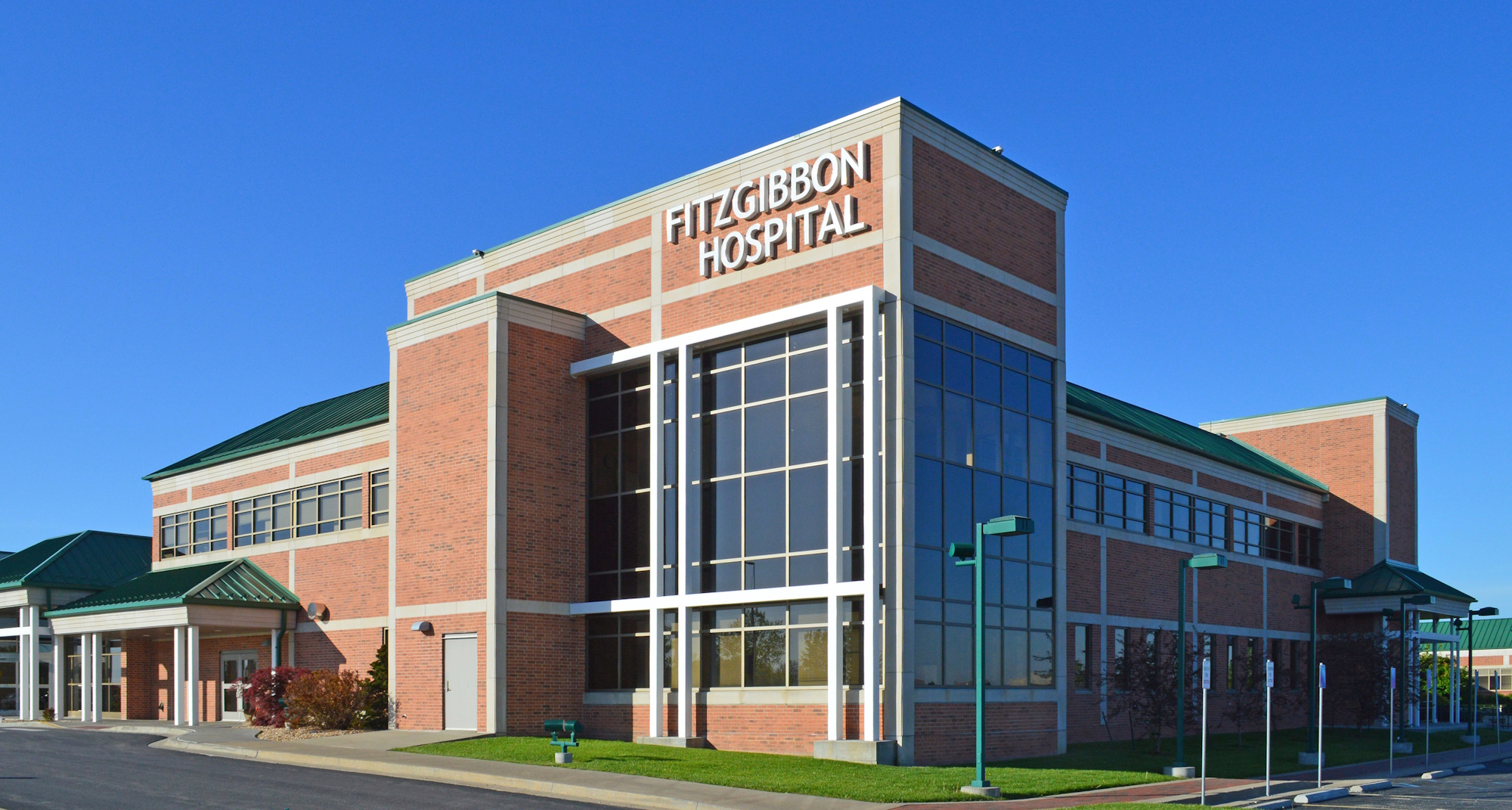
Hollabaugh’s Virus Experience leaves him Thankful for Fitzgibbon Hospital
Covid-19 has certainly taken a toll on the country, not only financially, but in the overall attitude of people as some struggle to go about their day-to-day lives. Covid-19 “fatigue” is real. But when you are faced with a real fight against Covid-19 disease because you have contracted the virus and have severe symptoms, the toll it takes can be overwhelming. After Pete Hollabaugh, General Manager of KMMO Radio in Marshall, was exposed to Covid-19 at work, his journey included trips to the Emergency Room at Fitzgibbon and subsequent hospitalization.
Some four months after he contracted Covid-19, Hollabaugh reflected with gratitude about his experience in the Fitzgibbon Hospital Emergency Department.
“I felt like I was the only one in the ER. The level of attention I got when I got there was phenomenal,” said Hollabaugh, glowing with praise for the care he received in the Fitzgibbon Emergency Department. “They kept coming back and checking on me. I don’t even remember who the doctor was, but he constantly gave me updates.”
It was on a Friday during September 2020 when Hollabaugh was informed of an exposure at work – an exposure that ultimately infected five of his co-workers. Thereafter, he became all too familiar with quarantine that so many of us have faced over the last 10 months. He began having minor symptoms the following Wednesday, and he called his doctor, Jamie Ulbrich, M.D., who provided the order for Hollabaugh to receive his Covid-19 test at Fitzgibbon Hospital. That evening he received his positive result, and his wife, Jill, tested positive the next day.
“We were doing fine, even when Dr. Ulbrich called me the next Wednesday evening. But then things changed. I didn’t even realize it,” said Hollabaugh. “When I answered the phone and said, ‘Hey,’ apparently I was out-of-it so far he asked me to get Jill on the phone and he told her to get me to the ER immediately.”
What happened next was a bit of a blur for Hollabaugh, who recalled that his oxygen saturation level was in the low 80s upon his arrival at Fitzgibbon Hospital. Normal is between 95 and 100 percent. The seriousness of his condition meant he needed to be transferred to a larger, metro-area hospital with intensivist physicians and expanded capacity to treat Covid-positive patients. Staff at Fitzgibbon called several hospitals in Kansas City and Columbia before finally finding a facility that would accept Hollabaugh’s transfer. Since this difficulty last September, Fitzgibbon Hospital has since purchased high-flow oxygen equipment and put into place plans of care to treat moderately ill Covid-19 patients who need high-flow oxygen therapy.
“I tell you that was an eerie feeling, being in the back of the ambulance and noticing the sign for Marshall, Mo., and I wondered if I’d make it back home,” said Hollabaugh.
He was transferred to University Hospital in Columbia, where he stayed for several days. He said he received great care there, but it was a real challenge, with a no-visitor policy in place and his wife at home, also with Covid-19.
“I was so out-of-it when I arrived at University that I didn’t even realize I left the house with my slippers on. I got worse while at the hospital in Columbia. The doctor would ask me a question, and I had to have Jill answer on the phone because I could only get out a couple words between breaths,” said Hollabaugh.
During his battle with the virus, Hollabaugh said he experienced some of the well-known symptoms that most people report, including loss of taste and smell, diarrhea for most of the duration of the virus, weakness, and, of course, extreme shortness of breath. But one thing Hollabaugh was not prepared for was the intense headache he experienced.
“I have had a lot of pain and injuries through the years, but that headache! I had the worst headache I have ever had. I could have died right there, and I wouldn’t have cared, it was so bad,” grimaced Hollabaugh, as he reached up to put his hand on his head. “They kept increasing my pain medicine, and it just wouldn’t touch it. It even hurt to put my head on the pillow.”
Later, Hollabaugh returned home to recover. For two weeks he didn’t leave his bedroom or bathroom, shuffling only a few feet at a time without having to stop to breathe. At his worst, Hollabaugh said he could only get one or two words out between breaths.
People need to know that Covid-19 is real and they need to pay attention to their symptoms, Hollabaugh said, when asked what advice he has for others.
“Don’t wait to go to the ER until you are struggling. If Dr. Ulbrich hadn’t called me that morning and told Jill to get me to the ER, I may not have made it,” said Hollabaugh. “I tell everyone to pay attention, and if you need to, ‘overreact’ to your symptoms.”
Hollabaugh stressed the importance of taking the virus seriously by wearing a mask, observing social distancing and practicing good hand hygiene so people can avoid catching this virus. KMMO radio station has been closed to visitors since the beginning of the pandemic. Staff are required to wear masks and put their mask back on after any recording they do is complete.
In reflection about his experiences, Hollabaugh said he understands how important it was that Fitzgibbon Hospital was here during his battle with Covid-19.
“I have been a supporter of the hospital for years. I was here when the new facility had an open house while the old facility was still operating. I helped raise money for the Fitzgibbon Community Cancer Center. It is imperative that we support our local hospital,” said Hollabaugh. “The hospital is a vital part of our community.”



.png)